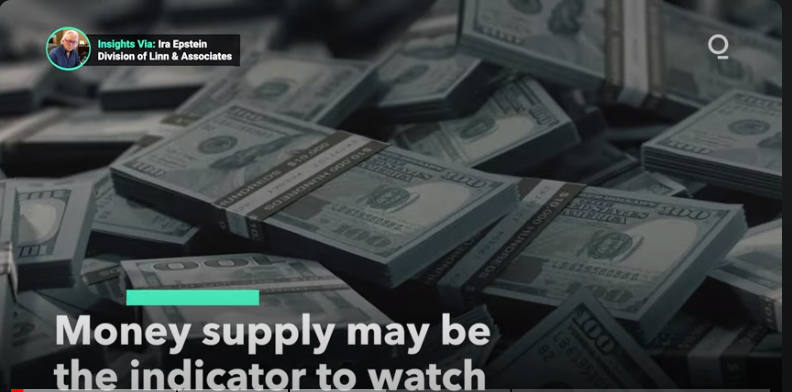
The behavior of the U.S. money supply, particularly when it shows a significant downturn, has historically been a precursor to major economic events. With contemporary indicators suggesting a decline not seen since the Great Depression, investors and economists are eyeing potential impacts on financial markets, specifically the stock market.
U.S. Money Supply and Economic Indicators
Understanding the dynamics of money supply is crucial to grasping its potential implications on the broader economic landscape and stock market behavior.
M2 Money Supply’s Historical Insights
The M2 money supply, a comprehensive measure that includes cash and checking deposits along with savings and money market securities, is witnessing a noteworthy contraction. This economic measure has been increasing steadily over the last century, providing the liquidity needed for sustained economic growth. In stark contrast, the current decline represents a significant shift in economic conditions that could signal an impending recession.
Analyzing the Great Depression and Previous Economic Patterns
Delving into the past, the substantial reductions in money supply have often been associated with economic downturns. The experiences of the 1929 stock market crash and the Great Depression illuminate the drastic consequences of liquidity shortages. As money supply tapers, so too does consumer spending, investment, and, ultimately, corporate profitability.
The Role of the Federal Reserve in Monetary Policy
The Federal Reserve plays a crucial role in managing the money supply through its monetary policies. Historically, its actions have significantly influenced market movements, and its response to the current trends will be closely watched.
Interest Rates as a Mechanism for Control
One of the Federal Reserve’s primary tools is the manipulation of interest rates, which impacts borrowing costs and, by extension, the money supply. The current context of interest rate adjustments is particularly relevant given the trends seen in historical financial crises.
The Importance of Quantitative Easing in Market Stabilization
During times of economic stress, the Federal Reserve has also turned to quantitative easing to increase the money supply, encouraging lending and investment. This unconventional monetary policy tool has been pivotal in past market recoveries.
Financial Volatility and Investor Strategies
In anticipation of market movements, investors often reassess their investment strategies. A shrinking money supply could lead to increased stock market volatility, prompting a strategic shift.
Bank Failures and the Health of the Financial System
The health of the banking system, indicated by the frequency of bank failures, can also signify the broader economic environment’s state, affecting investor confidence and financial markets.
Predicting Market Outlook with Economic Data
While perfect prediction models don’t exist, economic data like the M2 money supply gives valuable insight into potential market directions, informing predictions about the upcoming market outlook.
Frequently Asked Questions
Q: What is M2 money supply?
A: M2 money supply consists of cash, checking deposits, as well as savings and money market securities, reflecting the overall liquidity available in the economy.
Q: Why is a decline in M2 money supply significant?
A: A decline in M2 money supply suggests lower liquidity in the economy, which can lead to decreased consumer spending and investment, often foreboding an economic downturn.
Q: How does the Federal Reserve influence the money supply?
A: The Federal Reserve influences the money supply through setting interest rates and conducting open market operations, including quantitative easing, to regulate the economy’s liquidity.
Conclusion
As the U.S. money supply experiences a downturn not witnessed since the Great Depression, investors and economists speculate on the implications for the stock market. History suggests that such trends often signal significant economic shifts, potentially heralding periods of market volatility or recession. With the Federal Reserve’s monetary policy as a counterbalance, understanding these dynamics is paramount for anticipating future market movements.
Comments
Post a Comment